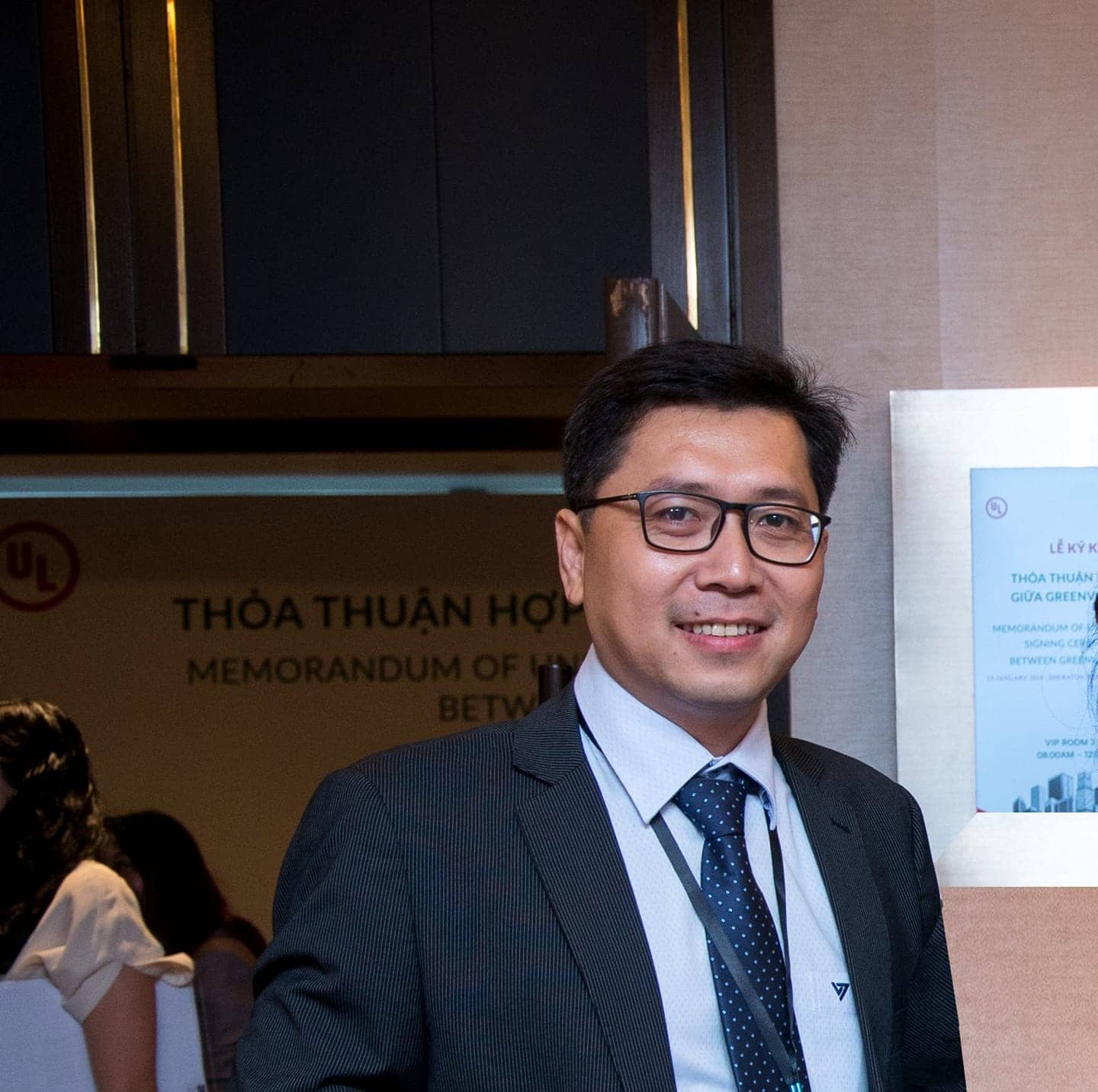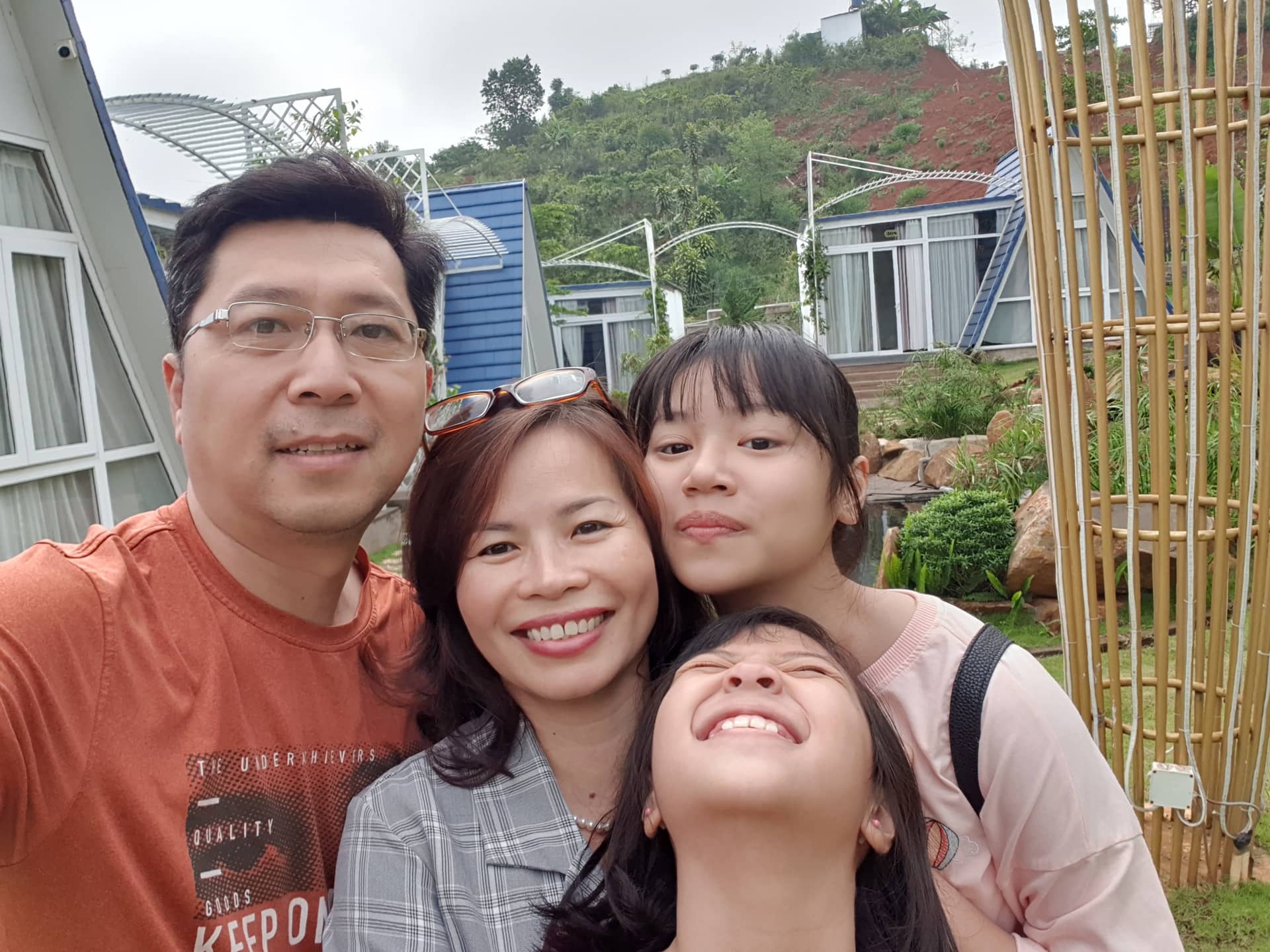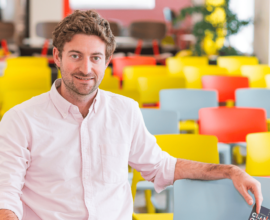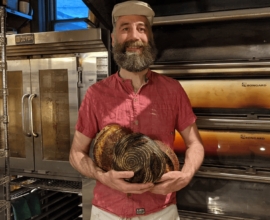Quang Do
A Vietnamese success story
![]() Reading Time: 9 minutes
Reading Time: 9 minutes
Co-founder of GreenViet Consultancy
This is the story of how a quiet Vietnamese boy raised in a poor rural village with no electricity and no library, ended up bagging an MBA from Audencia. When we ask Quang to revive his childhood memories, one prevails: the hours spent immersed in his schoolbooks. His parents didn’t let him enjoy much free time, and he lacked access to any other activities anyway. In his teen years came the realisation that education could be a gateway out of poverty, towards another way of life for his family. When he reached adulthood, Quang was finally in the comfortable position of appreciating education purely as a source of intellectual stimulation. Never sated, he now has his eyes on a PhD, potentially in the US. What a long way he has come!
Quang co-founded Vietnam’s first consultancy firm specialising in green building, and the company currently holds a national market share of 50%. He makes no secret that going into sustainability was primarily an opportunistic business move to gain a competitive advantage. This admission could be disconcerting for a western audience accustomed to sustainability-led businesses capitalising on their purpose-driven motivations. But we prefer to recognise the challenges that Quang had to overcome to get there, the ingenuity and business flair he displayed as a pioneer in this niche, and celebrate his achievements. With over 100 projects completed under his belt for prestigious clients such as Decathlon, P&G or Mastercard, GreenViet is revolutionising building practices and contributing to a greener Vietnam.
We are humbled by Quang’s maturity as a child, and the determination that has driven him throughout his life to turn his family’s fate around. His motto is both simple and powerful: “You have to write your own story!”
What sort of childhood did you have?
I was born in a poor rural village called Lang Co, not far from Hué in the centre of Vietnam. My parents were primary school teachers and as a family we didn’t have much money. I don’t recall my older sister, my two younger brothers and I having much to play with, except for a chess board. At the end of the school day, our parents insisted we spend our time studying, which suited my quiet personality. I never joined any school trips, to save my parents money and have more time to study which is why you won’t find me in any of the group photos that my former classmates post on Facebook…
What was the experience of moving from your rural village to the big city like?
There was no high school in our village, so when I turned 14, my family moved to Ho Chi Minh City, Vietnam’s most populous city. My parents didn’t continue teaching because of the complicated bureaucracy involved in transferring from one school to another. In any case, their salary would have been too low to support four children. They had to juggle various small jobs, so our first five years in HCMC were particularly tough.
The transition was a big shock for me. When we arrived, I had to put my education on hold for one year, to earn money and help support my parents. Luckily, my cousin who was doing some electrical work on construction sites offered me a job. But it was absolutely not a vocation back then! At that age, I had no idea what I wanted to do with my life, and I couldn’t wait to go back to school.
A vivid memory I have from that time is back in 1994 with my brothers. We were desperate to watch the Champions League Final, but our parents didn’t own a TV. The highly anticipated AC Milan vs. FC Barcelona game was on at midnight Vietnamese time and we followed it lying on our beds, ears pressed to the wall to try and catch the commentary from our neighbours’ TV. It was then that I made a promise to my brothers that with my first salary after graduation, I would buy a TV for every room. From then on, I channelled all my frustrations into my studies.
Why did you choose to study civil engineering?
After finishing high school, I was tempted to study IT because I was in awe of IT engineers! Instead, I made the more rational decision of a civil engineering degree. I knew that the Vietnamese housing infrastructure was still poor and that the construction sector would bring me job security. My parents encouraged me in that direction, saying that if I couldn’t find a job in a large company after graduating, there would always be work on private building projects.
Why did you end up spending almost 10 years in higher education?
I have always been studious but it was only when I reached high school that I realised how education had the power to pull us out of poverty. Several times during my academic journey, I felt this sense of responsibility to become more aggressive in my focus and to be successful.
When I finished my second year at the University of Technology, I realised how much I wanted to improve my English and how it would help me to earn a better living. When I explained to my dad that I was considering quitting engineering for English studies though, he put his foot down! We reached a compromise and I studied English at evening classes, a routine that gave me an average of 5 hours of sleep each night, but I’ve never regretted it.
Later, after five years working in construction, it became clear that I would need extra academic skills to move my career forwards. The idea of an MBA came out of a desire to hone the practical knowledge I had in finance and marketing. The French Vietnamese School of Management had a partnership with Audencia but only a handful of top performing students were eligible to spend the second year in France, and benefit from a scholarship. I studied extra hard and finished third out of 65 students and the rest is history…
How did you career move forward in the early days?
I started as a site engineer for a large construction company. My task was to supervise builders, ensure safety measures were respected, and that construction was progressing as per schedule. My English skills paid off because my manager picked me to read contracts and attend meetings with international clients and property developers.
But the reality was that I was still spending most of my days – and many nights – in the dust and stifling heat of the construction sites. I knew I could take up more interesting responsibilities than shouting out instructions to builders. One day my wish came true when a senior Taiwanese client of mine made me the offer of becoming one of their project managers. This job not only allowed me to work in an office with normal office hours, but also broaden my skills in architecture, finance, sales and marketing. Soon I was able to handle entire projects from end to end. I was acquiring all these management skills on the job, but at some point, I knew that my next step should be an MBA.

So, tell us about your experience of spending a year at Audencia as an MBA student?
I came to France in 2007 and my wife came with me, but frankly I didn’t have much time to enjoy Nantes with her, nor socialise with the other students, because the MBA programme was intense. We had to read our textbooks before class and prepare questions for the teachers… not the other way around in the way I was used to. I initially found the learning culture challenging. I was expected to interact in class, but Vietnamese people traditionally don’t open up in a group setting, and I am naturally reserved. By the end of the programme, I felt more comfortable with this format though and I can say the experience changed me.
I heard that you left Audencia with a special “souvenir”?
That’s right! My wife was pregnant during our stay in Nantes and our daughter was born in Lyon where a close friend of ours lived. After one month, our family of three came back to my tiny student room in Nantes where we tried to keep a low profile to avoid complaints from our fellow residents. On top of that, I had my thesis to write… it was certainly a testing time! Our daughter was born in the Vietnamese year of the mouse and because the word mouse translates as “souris” in French, we called her “Suri”, a name which works in Vietnamese.
What motivated you to set up your own company?
Once back in Vietnam, I returned to work for my previous employer, but after three years, I understood that I would not exploit the full potential of my MBA in a large company. My idea was to set up a consultancy firm to see how I could apply my knowledge and test my capabilities. I was 34 and wanted to have a shot at becoming an entrepreneur and businessman. One of the architectural projects I carried out before leaving my salaried job was the first in Vietnam to include sustainable specifications. My MBA helped me identify sustainable construction as a high potential niche that could provide me with a competitive advantage. I researched the market and concluded that I was the only one in the country with an MBA combined with a double expertise in construction and sustainability.
Another motivation was my frustration with the wage scale in Vietnam that penalised local talent unfairly. In my previous company, I discovered that an American colleague of mine was paid 5 times more than me! I wanted to prove that Vietnamese could play in the same league as non-Vietnamese and this is why I named my company GreenViet. I am very proud of the fact that we now win tenders against big international companies.
What first inspired you to work in sustainability?
When I was younger, I read a newspaper article about Scandinavian “passive houses”. I was impressed by the concept of a house that can balance its energy, is naturally cool in summer and efficiently insolated in winter, all with minimal energy consumption and a sleek design.
How did you manage to sell your innovative business proposition?
The first three years were a struggle. Vietnamese living standards were low compared to places like Singapore, Malaysia or even Thailand. The market didn’t understand the need for sustainable projects and demand was low. But I knew that we had to get our act together, hire the right staff, and put processes in place before the giants from Singapore and the US jumped in. My priority was to keep the company afloat and pay the salaries of my small team. My business finally took off in 2015: people’s living standards had improved by then, as so did their awareness of health and of sustainability issues.

Could you tell me about a GreenViet project that you would like to highlight?
Approximately 20% of our activity is office buildings, and we also occasionally build schools and hotels, but the bulk of our portfolio is factories. One that makes me particularly proud is a garment factory for Decathlon near Ho Chi Minh City – the first sustainable factory for this prestigious French manufacturer. We set up a smart natural daylight system that drastically reduces electricity use. During the day, the building needs virtually no air conditioning or artificial lighting. There is a spacious cafeteria looking over a fruit garden with mangoes, jackfruits, oranges, vegetables… where you would typically find a standard lawn. The client filmed the whole building process and showcased it at their annual gathering of factory owners in Paris a few years ago – one of my proudest achievements!
On a personal level, are you optimistic or pessimistic about our ability to preserve the environment?
There is no doubt that the situation is worsening alarmingly, but I am optimistic that, collectively, we will find solutions. Amid the chaos of the Covid-19 pandemic, there has definitely been a surge in awareness. I believe that several long-lasting positive trends will come out of the crisis. For example, before 2020, online business meetings were a rarity in Vietnam. Now I don’t think my clients would ever again expect me to drive or fly 2 hours for a 1-hour meeting!
How did your professional success impact your family?
My academic efforts have paid off. While I was at Audencia, my brother expressed the wish to go and study in a university in the US. My dad called me for advice because we didn’t have enough savings to support him. Motivated by the belief that my MBA would soon allow me to earn a higher salary, I was able to sponsor my brother’s studies. That was a wise move; my brother studied in the US, graduated and is now settled there.
My parents are immensely proud of what I have accomplished. I did keep my promise and bought them three TV sets with my first paycheck! But more importantly, with my financial support, they were able to retire early after an exhausting life. Fortunately, my kids are growing up in more favourable conditions than I did, but I often share with them the hardships I faced. It is important that they understand where I come from and that they remain grounded.
Where do you see yourself in 5 or 10 years?
As I get older, I feel drawn towards academia again. Three years ago, I started to teach a few hours a month at the university. I teach the two subjects I am passionate about: marketing/CSR on the business side, and sustainable construction on the engineering side. And the next big leap I am planning is to begin a PhD in the next couple of years. I am aiming for the US, which could be a great adventure for me and my family. So yes, more studying ahead!
What do you enjoy doing in your downtime?
My daughters are 12 and 8 years old and I am acutely aware that I don’t have much time left with them at home. They might leave the nest soon to study somewhere in the US or Europe, so we always try our best to spend some quality time with them. Suri doesn’t have a strong connection with France, but we try to nurture the affinity whenever we can. And what better way than through food. I am so glad to have discovered a French supermarket in my neighbourhood, the equivalent of a “Marché U”. And guess what… they even sell my favourite brioches!

